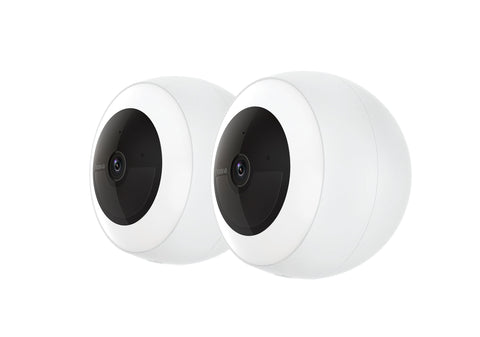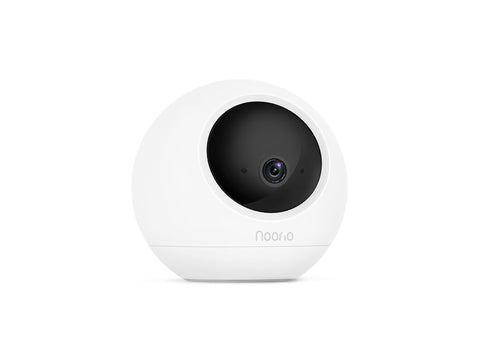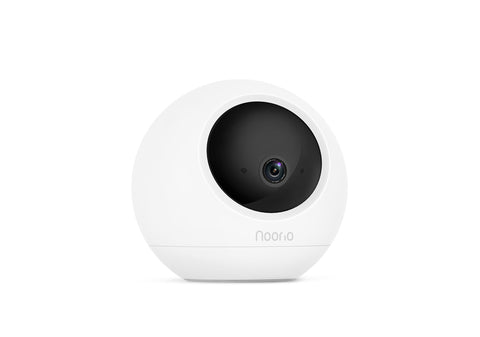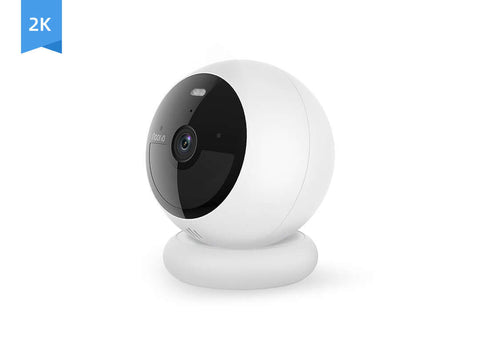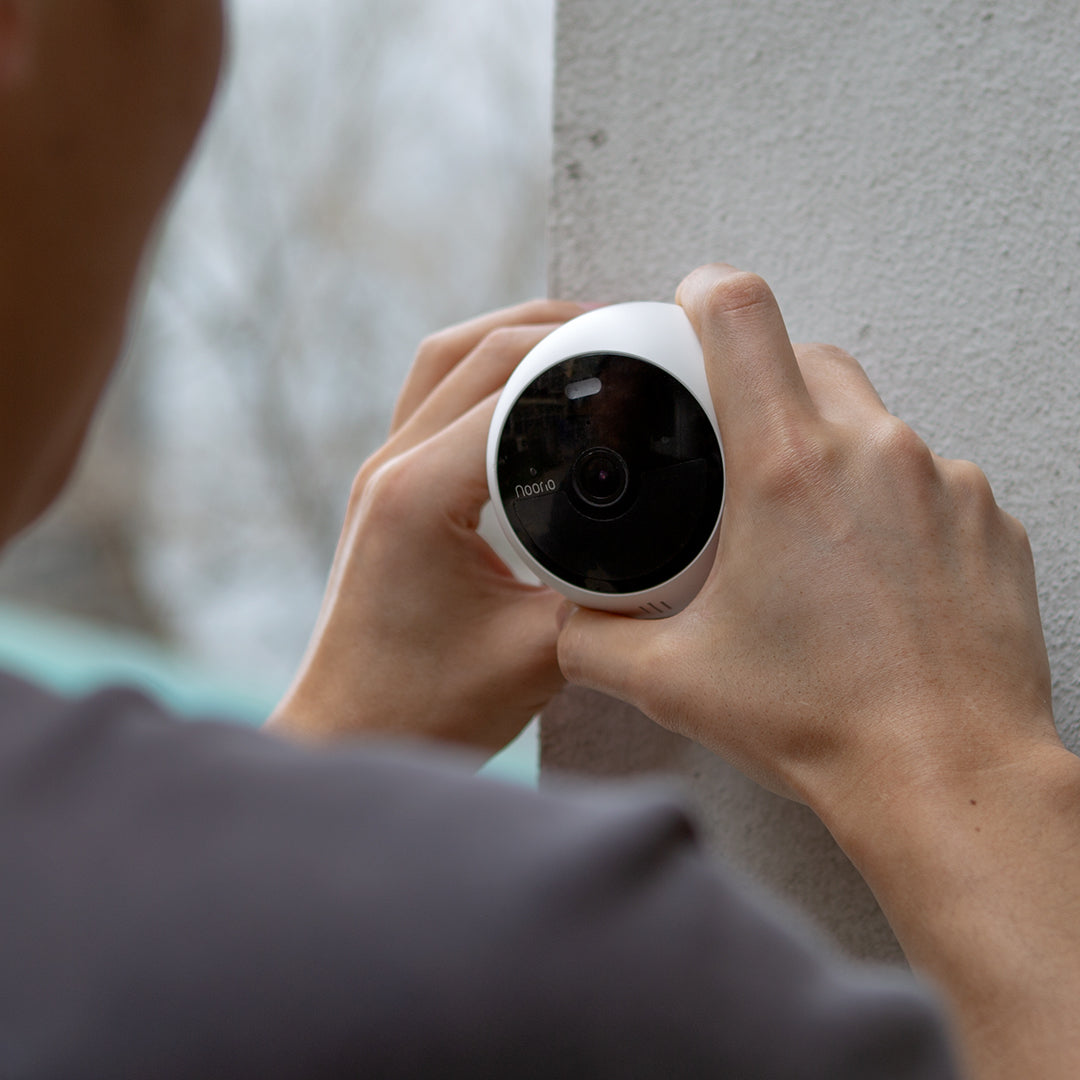CCTV (closed-circuit television) cameras have become ubiquitous for security and surveillance purposes. However, many people remain unaware that these cameras can operate independently without relying on the internet.
In this in-depth guide, we'll explore how non-internet CCTV systems function, their advantages and limitations, factors to consider when setting one up, and address common misconceptions. By the end, you'll have a thorough understanding of utilizing these cameras offline.
System Components
Cameras
CCTV cameras come in two main types - analog and IP. Both can function offline but IP cameras offer higher resolution and features like motion detection. Key specs to consider are megapixels, night vision range, and viewing angle.
DVRs and NVRs
Digital video recorders (DVRs) and network video recorders (NVRs) serve as the "brains" of a CCTV system. They connect cameras, store footage, and allow local video playback. Features vary but look for onboard storage size, ports, and mobile app compatibility.
Additional Hardware
Other essentials include switches, video transmission cables like coaxial or Cat5e, power supplies, and mounting poles/brackets. High-quality components ensure seamless operation for years.

How CCTV Cameras Work in Offline Mode
Traditionally, CCTV systems required a physical connection between cameras and monitors for live viewing. Thankfully, modern options support internet connectivity for remote access convenience. But their core design also allows independent operation offline.
Local Recording and Storage
Most CCTV cameras can record continuously to local storage devices even without internet. This typically involves a digital video recorder (DVR) or network video recorder (NVR) that stores footage internally or on direct-attached storage like hard drives.
Some cameras also offer integrated microSD card slots for portable offline storage. Local recording ensures 24/7 surveillance coverage regardless of connectivity issues.
Direct Connection to a Display
Older analog CCTV cameras transmit signals through coaxial cables to linked monitors for live viewing. While less practical over long distances, this simple wired configuration remains viable for small local systems without internet complexity.
Advantages of Offline CCTV Systems
Reliable offline functionality provides some compelling benefits over internet-reliant setups.
Continuous Surveillance Coverage
Loss of internet access doesn't disrupt monitoring since recording remains fully functional. Critical areas stay securely surveilled without fail.
Reduced Dependence on Unpredictable Factors
Without using the internet, offline CCTV systems avoid potential connection issues from outages, congestion, or cyber threats that could compromise online-only cameras.
Simpler Setup for Remote Locations
Internet infrastructure isn't always available everywhere. Offline CCTV offers an easy installation solution for places lacking stable connectivity.
Limitations of Going Offline
Of course, giving up internet access also means sacrifices, like:
No Remote Access to Live Feeds or Recordings
Offline setups cannot support mobile app viewing or remote offsite monitoring through computers. Access is limited to local displays/DVRs only.
More Complex Local Access and Management
Connecting additional monitors, retrieving stored footage, and configuration adjustments require physical access to the cameras instead of remote management convenience.
Reduced Feature Set Without Software Updates
Compared to internet-connected cameras, offline ones cannot benefit from regular firmware and app updates that introduce new functionality over time.
Choosing Your Camera Type
The two main categories are analog CCTV cameras versus IP network cameras. Both support offline use though IP cams offer more advanced features when connectivity returns.
Analog CCTV Cameras
Traditional analog cameras transmit composite video signals through coaxial cables. Simple and reliable for basic local viewing, but lack networking capabilities of IP cameras.
IP Network Cameras
These cameras connect through an Ethernet port and support internet protocols. While still fully functional offline via local storage/viewing, IP cameras tap richer features like motion detection, cloud services when reconnected.

Installation
Detailed planning prepares for quick, hassle-free setup.
- Camera Placement: Mount cameras 8-10 feet high facing 45 degrees downward for optimal facial/license plate coverage without blind spots. Position around entry/exit points.
- Cable Runs: Neatly trace video/power cables through walls/conduits to DVR locations while avoiding interference or damage. Label clearly for easy identification.
- Equipment Setup: Connect cameras and storage hardware following manufacturer instructions. Configure network settings, user permissions, recording schedules for automated surveillance.
- Test and Troubleshoot: Ensure live video displays correctly on all cameras before securing permanent mounts. Check infrared night vision, microSD storage, and make adjustments as needed.
Factors for Offline Installation
Proper planning optimizes standalone CCTV systems where internet is unreliable or nonexistent.
1.Camera Placement
Strategically position cameras around entry points and high-risk areas for thorough coverage without blind spots.
2.Local Storage Options
Prioritize cameras compatible with SD cards, hard drives, or NVRs/DVRs for long-term offline video archiving.
3.Alternative Power Sources
Beyond standard power lines, also consider batteries, solar panels or generators to keep cameras running during outages.
4.Access Control Settings
Password protect offline DVR/NVR systems and mandate strong credentials to deter unauthorized local access to equipment/footage.
System Use and Maintenance
- Local Video Monitoring: Access real-time or recorded footage through the DVR's or NVR's built-in viewer, connected TV/monitor, or limited local network app preview on mobile.
- Backups and Storage Management: Schedule routine backups to redundant storage devices. Implement automatic overwrite policies to prevent filling primary storage.
- User Access Control: Enforce strong unique credentials and two-factor authentication to guard against unauthorized tampering with equipment or recorded videos.
Optimizing Storage
Larger systems require managing vast footage volumes efficiently. Consider these storage upgrade options:
- Internal/external hard disk drives: High capacity but potential for failure
- Network attached storage (NAS) devices: Reliable redundancy across multiple hard disks
- MicroSD card DVR recorders: Convenient portable archiving
Match storage capacity and drives to anticipated recording times based on total camera counts and resolutions used. Ensure automatic backups preserve evidence longevity.
Offline Use Cases
- Security For Isolated Areas: Remote businesses, farms and construction sites relying on CCTV gain coverage anywhere internet isn't viable. 24/7 activity tracking deters theft and vandals.
- Evidence Gathering: One farmer reported vandal damage captured by his offline DVR proved invaluable for insurance claims processing and potential prosecution. Clear video led to arrests.
- Optimizing As Internet Returns: When connectivity resumes, export stored videos off-site for cloud archiving convenience. Then leverage IP cameras' full features moving forward, like email alert notifications.
In conclusion, designing a robust offline CCTV system provides security wherever you are, regardless of internet dependencies. Rigorous planning and regular maintenance delivers long-term surveillance protection for people and property anywhere.

Addressing Common Questions
Let's break down some key concerns users typically have about running CCTV offline.
1.Can Offline Cameras Capture Clear Videos?
Absolutely - image quality depends on individual camera specs like resolution and low-light performance, not internet connectivity.
2.Will Night Vision Still Work?
Night vision is an independent camera function unaffected by internet availability. It relies on onboard infrared LEDs/sensors, not network capability.
3.Is There Any Mobile Access Possible?
While live remote mobile viewing requires internet, some cameras offer limited local WiFi mobile access when within the offline system's physical range.
Conclusion
In summary, CCTV cameras are perfectly capable of autonomous operation without internet connectivity. For locations lacking stable networks, offline video surveillance provides reliable protection. With strategic planning around camera functions, storage, power sources and local access, non-internet CCTV systems perform flawlessly.


